Best Ways To Protect Your Home When You're On Vacation
by Robert Fox
No one wants to think about their home being broken into while they're away on vacation. But unfortunately, it can happen. There are steps you can take, however, to protect your home and give yourself some peace of mind while you're away. Follow these tips and you can relax and enjoy your time off knowing your home is safe.
Contents
- Why Protecting Your Home While You're Away ?
- Top 26 Best Ways To Secure Your Home When You're On Vacation
- Check existing alarms / smart home security
- Establish a Security System in Your House
- Make It Seem as Though Someone Is at Home
- Pay Bills in Advance on the Internet
- Make New Friends with Your Neighborhood
- Sharing keys with friends or neighbors
- Request That a Neighbor Collect Your Mail
- Entrust a Key to a Friend or Relative
- Unplug everything that doesn't need to be plugged in while you're away
- Keep an Eye on What You Post on Social Media
- Set Timers for Lights
- Do Not Assist in the Cover-up of a Thief
- Use of biometric safes and safety deposit boxes
- Install Heavy-duty Locks
- Pipes
- Lock all doors and windows
- Don't Keep a Hide-a-Key Lying About
- Unplug Any Electrical Appliances
- House Insurance Policies
- Motion Sensor Lights
- Leave the Window Coverings Alone
- Climbing Points Should Be Avoided
- Do the Dishes and Empty the Garbage
- Unplug All Non-essential Devices
- Examine All of the Locks
- Protect Your Garage Door
- Conclusion for How to Protect Your Home When You're On Vacation
- More from my site
Usually being slightly overly enthusiastic, we often forget about the one thing that we should do before we leave our home - which is to take adequate security measures for preventing possible intrusions in our empty home. Remember that downstairs window that's always open a crack? That's not something you want to be thinking of when the airline pilot tells you you've just reached cruising altitude.
Why Protecting Your Home While You're Away ?
There are a number of reasons why you should protect your home while you're away. Firstly, if you're not there to monitor what's going on, intruders could break in and steal your belongings. Secondly, without someone there to water your plants or take out the trash, your home could quickly become a mess. Finally, if something happens while you're away (e.g. a fire), you'll want to have insurance in place so that you can recover from the damages as quickly as possible.
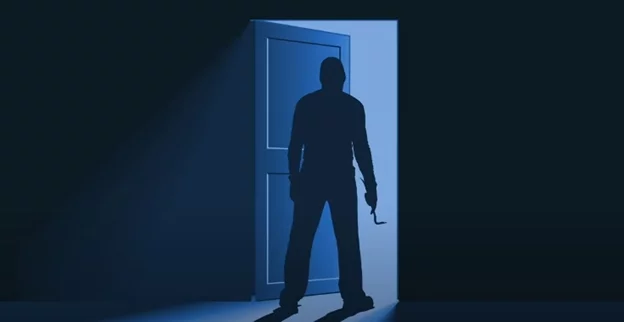
Top 26 Best Ways To Secure Your Home When You're On Vacation

1. Check existing alarms / smart home security
If you have an alarm system, or you are using the services of some security company, inform the company that you will be absent for a while, double check to see that the alarm is properly set before leaving.
Another option is to get a smart home security system set up before you leave to go on your big vacation. They are more affordable now than every and they can put your home security matters no into your own hands by giving you remote access to everything from locks, to cameras, to lights, and more!
Better yet, consider to Purchase a Home Surveillance System
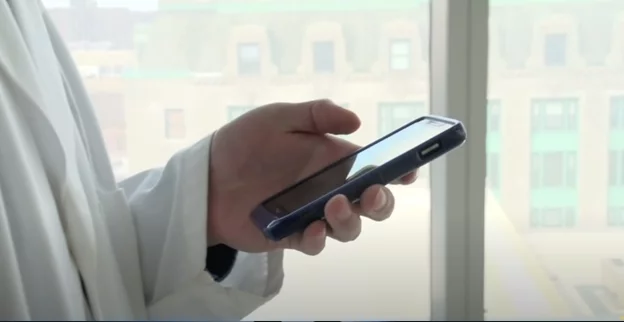
House security is critical, and there are several alternatives to pick from, so make sure you select one that is appropriate for your home. Many security measures even enable you to see live video from your phone, allowing you to monitor what's going on in real-time. This tiny purchase is definitely worth the peace of mind it provides!
2. Establish a Security System in Your House
Typical home protection alarms include sensors on all entrance doors, sensors on readily accessible windows, and some motion-actuated sensors for outside areas. They also provide a direct connection to a monitoring system. These devices serve as deterrence to intruders and are quite simple to use.
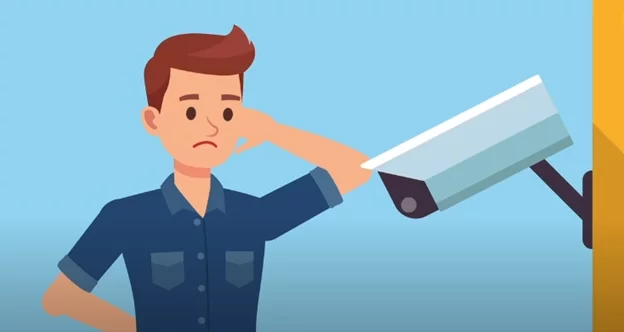
- You may install a home automation system that enables you to access your security system through a smartphone or computer application. Outdoor cameras, automatic lights, an alarm and monitoring system are often included in a comprehensive security system. These provide you with peace of mind while you're away from home.
- Having a security system may also help you save money on your homeowners' insurance.
3. Make It Seem as Though Someone Is at Home
To prevent becoming other crime stats, make it seem as though someone is still at home. Set timings on lights, radios, and TVs to turn on at different times in the mornings and afternoons. Check to see whether your lawn has been recently trimmed. Request that someone park their vehicle in your vacant driveway. Place window shades and curtains as usual, but make sure they don't expose pricey household goods or appliances. While you're at it, ask a neighbor to take your mails and arrange for your newspaper service to be halted.
4. Pay Bills in Advance on the Internet
Nobody likes paying bills, but you'll be glad to know that everything is taken care of while you're gone. You would not want to miss a payment while on vacation. This is particularly significant for utilities and businesses that do not accept internet payments. Before you go, drop your cheques in the mail.
5. Make New Friends with Your Neighborhood
Making friends with your neighbors is a win-win situation. However, it is not something that most people do these days.
Request that a neighbor collect your mail while you're gone, as well as keep an eye out for any leaflets or newspapers dropped on your doorstep, to assist keep your front yard neat.
A neighbor parked in your driveway also indicates that someone is at home.
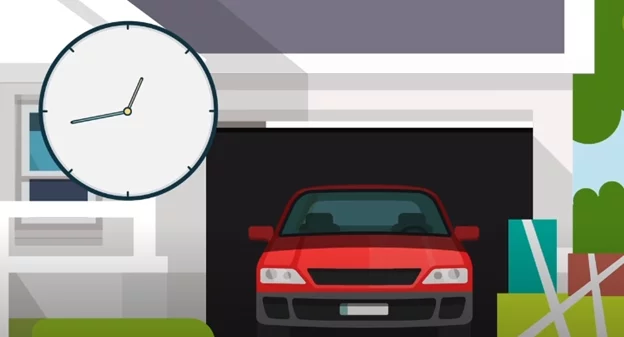
6. Sharing keys with friends or neighbors
If you give a key to your trusted neighbor, this will allow them to quickly react in case of emergency.
At the same time, with the occasional presence of people in your home, it won't be noticeable that there's no one in your home for a longer period of time, so you can deter some intruders from their initial plan to break in an empty home because they won't think the house has been left alone.
Just be sure not to have this tip backfire. How can that be? Well, its as easy as giving your key to that neighbor you don't know too well, or your son or daughter's teenage friend who just last week stole a stereo that you didn't know about. You need to be very careful when sharing keys. Also, don't make the amateur vacationer mistake of writing "Janet - the key is in the mailbox. We'll be back in three weeks!" and taping the note where anyone can see it.
7. Request That a Neighbor Collect Your Mail
In addition to the aforementioned, some thieves may hunt for indicators of vacation by peeking through the post box. A stack of unread letters is an invitation for burglars, so have a neighbor go in and get your mail for you. All they have to do is relocate inside the home so that it is not visible.
8. Entrust a Key to a Friend or Relative
As you can put a limit on newspapers and mails, you never know when random fliers or forgotten Amazon purchases may be delivered to your house. You may prevent surprise deliveries and have usual activities (watering plants, hauling garbage cans to the curb) carried out by having a trustworthy friend or relative stop by every day or two. Don't forget to thank them for their assistance!
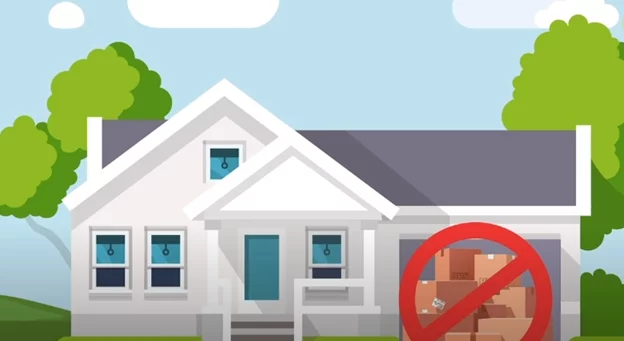
9. Unplug everything that doesn't need to be plugged in while you're away
You never know when a crazy thunderstorm might roll in and if lightning strikes the wrong spot, you wouldn't want that any unnecessarily-plugged-in device that you had plugged in to spark up, like some cheap $1 night light you bought that you just left plugged in for no reason.
This is why you should just give your house a good once-over before you leave, or maybe a twice-over, and make sure you don't leave that faulty piece of electronics plugged in when you're not home. Also, in recent years, there have been a number of problems with faulty surge protectors and power bars as well, so be mindful of that.
We guarantee that as you go around the house, you'll no doubt notice at least a couple things that really don't need to be plugged in.
At the same time, while we're on the topic of crazy thunderstorms, this touches back on our previous point of giving someone access to your home. If the person is the right person, they'll have no trouble coming home after a storm to check to make sure your freezer didn't turn off or your fish tank didn't lose power.
10. Keep an Eye on What You Post on Social Media
Here's one you may or may not have thought of before, which is to say that you might want to avoid posting your location on social networks like Facebook, Twitter or Instagram while you're on your trip. If you don't fully understand how some of these social media platforms work, or different apps, you may be putting yourself at risk.
Although you may think that only your close friends and family are the ones following your profiles, there are definitely other people out there who might come across your vacation pictures, figure out who you are, and then pay your house an unwanted visit because they know you're not there at that very moment. How do they know? Because you just told them and gave them proof! You can never be too careful, as they say…
We know how tempting it is to share facts or images from your trip on social media. But, although that barely-filtered photo of a dazzling blue lagoon makes all your buddies envy, it also reveals to prospective robbers that you're far away from home.
To keep criminals away, don't reveal any specifics about your vacation until you arrive. If you can't bear it any longer, here's a workable solution: Use a metadata removal tool geo tags from social network postings, or turn off the geo tagging capability on your phone. Also, make certain that your sharing options are set to private or "Friends Only."
11. Set Timers for Lights
It's highly advisable to set lights on timers so that it seems like someone is home. You'll need lights to cycle on and off frequently since if they're always on. Simple timers with specified intervals range in price from $5 to $13. Smart plugs allow you to manage your house lights from anywhere.
Set up motion detectors. Consider putting motion sensors that turn on a light when someone walks nearby if you have outdoor areas. Consider installing motion sensors near any entryways, such as those on porches, decks, and garages.
- Ensure that the sensor-controlled light is bright enough to attract the notice of anybody trying to enter the residence.
12. Do Not Assist in the Cover-up of a Thief
Burglars value their privacy. Setting a clear vision from the house to the street might dissuade them from attacking your home.
This promotes "natural monitoring" and makes your house a more difficult target. Clear any plants or shrubs near an entryway that may assist a thief in remaining concealed from passers-by.
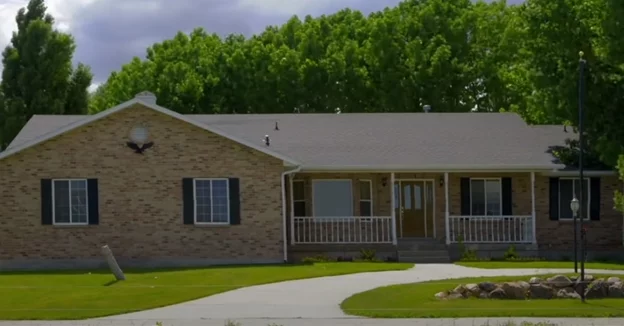
13. Use of biometric safes and safety deposit boxes
Any average thief knows to investigate the bedroom first for assets, so invest in a modest safe and keep it secure. If purchasing a safe isn't a choice then storing valuables in an odd location is a good idea. Visit Your Alarm Service.
Installing a security alarm in your house might provide you with more than just peace of mind; it may also qualify you for an additional discount on home insurance.
Do you lack an alarm system? Install fake security company signs to fool robbers, and if you really want to go all out, try putting fake surveillance cameras.
If you have valuables in your home, you can invest in a biometric smart safe for added protection. These kinds of safes are designed to be burglar-proof, using advanced technology to keep everyone out except for you, the owner. The only problem is they aren't gigantic, so you can't put larger items in them, but for your most valued possessions, they are unbeatable!
The other alternative is to put certain items in a safety deposit box, or even a storage facility where there's high security protection. If you have valuables that you don't feel comfortable leaving alone for weeks or even months at a time, it may be worth the effort.
14. Install Heavy-duty Locks
Consider installing a deadbolt or a high-security lock on entrance doors. Install locking that wedge between both the door and the track if you have sliding glass doors to prevent them from being opened from the outside.
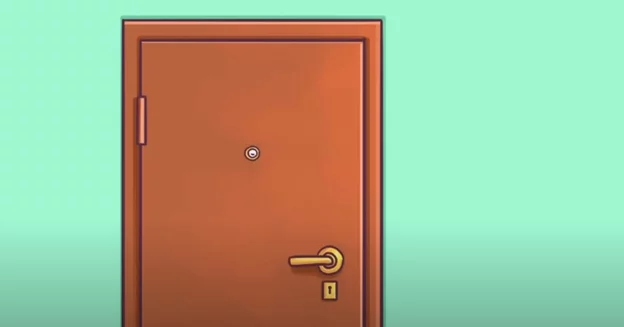
- Install security latches on window screens if you have them. Window screens are readily accessed, but security latches give an extra degree of security.
15. Pipes
Pipes are another thing to watch out for when you're going away on vacation. Giving your pipes a quick inspection can save you a lot of grief later, because it will give you the chance to spot that one rusty pipe that's leaking and get it fixed before you go. Remember, it could be hidden away somewhere - for instance under your sink. Of course, if you do find a leaky pipe, don't think that its you who should be the one to fix it…
Often, winter time is a popular time for people to take a vacation to a warmer climate, and, as we all know, winter is a time when problematic pipes decide to burst. If you aren't there when this happens, this makes the whole situation worse.
So, if you're taking a winter vacation, or even a summer one, take a good look at your pipes before you go for noticeable damage. If you don't have time or money to fix a leaky pipe before you go, at least make sure the person you've trusted to look after your house is aware of said pipe and they can see how the leak is doing on a daily or at least weekly basis.
Here's a video showing how to fix a pinhole in a copper pipe.
16. Lock all doors and windows
Lock all the doors and windows. Although this is the most obvious thing to do, just make sure you do it.
No need to go OCD about this, but feel free to double check everything before you hop in the airways transit van and drive away. Take a walk around your home and make sure you've looked at all your home's weak points, such as terraces, garage, etc.
17. Don't Keep a Hide-a-Key Lying About
If you think that "under the mat" is a secret spot for your key, think again. Thieves know these "secret" places perfectly well. Don't assume that "under the flower pot" is any better.
From personal experience, I can assure you that prospective thieves will always hunt for the concealed key, and they will locate it. This is the spare key you should provide to a friend or relative.
18. Unplug Any Electrical Appliances
To minimize fire hazards or power failures, disconnect any superfluous non-timed gadgets, such as TVs, coffee machines, and lights. Also, ensure that your smoke detectors are in working condition and that you have a fire extinguisher on available in case a house sitter has to put out a fire. Consider obtaining homeowners or renter's insurance since calamities may hit even the well-prepared family.
19. House Insurance Policies
For added protection, get yourself a household insurance policy that will fully protect yourself and your loved ones. Many of us aren't familiar such expenses, or how much they cost, but they might be worth investigating.
As this video states, house insurance can cover all manner of situations, from fire, to lightning, to people slipping on your property, to some drunk guy driving through your front gate and crashing into your favorite bush. What if your dog bites the mailman through the doggy door? If you haven't looked into this previously, then you may wish to.
20. Motion Sensor Lights
One last thing we'll suggest, which can be part of your typical smart home security system, is motion sensitive lights. These can be a quick and easy way to deter criminals from wandering onto your property, and they don't necessarily need to be part of a larger system, if that's beyond your means.
Here are some of the bestsellers in terms of motion detecting lights on Amazon today…
If you follow these tips, you are reducing the risk of unfortunate events that can be a serious threat to everything that you have created for years. All the effort, capital, love and devoted time could disappear in an instant. Allow yourself a stress-free vacation knowing that you leave your home perfectly safe.
21. Leave the Window Coverings Alone
This includes any window coverings such as curtains, blinds, or shutters. If you usually keep your curtains open during the day, try leaving them open while you're gone. Changes that are noticeable may tell people that you are not at home, such as closing your curtains for two weeks in a row when they are generally open.
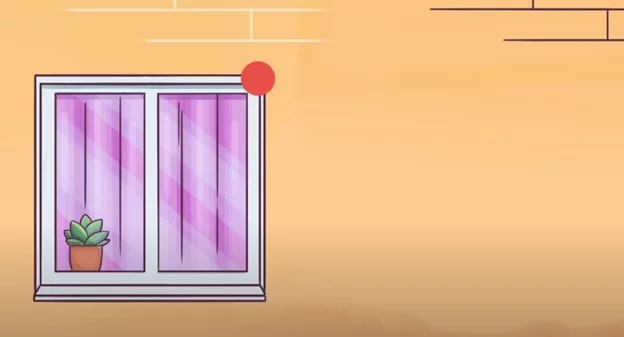
22. Climbing Points Should Be Avoided
Criminals are aware that doors and windows on the first and second floors are often less protected than ground-level access points.
Apartment occupants in high-rise buildings are not immune. While you may believe you reside twelve floors high, you are really just one level over the balcony below. Your safety is still crucial.
23. Do the Dishes and Empty the Garbage
We know you're eager to unwind and enjoy your holiday, as well as take a break from your everyday responsibilities. But when you return, you'll be pleased you washed the dishes and took out the garbage before leaving. You don't want unclean dishes or rubbish piling up while you're gone. Run the trash disposal to ensure there is no debris in there as well.
24. Unplug All Non-essential Devices
Before you leave, disconnect any non-essential gadgets in your house, such as your coffeemaker, radio, microwave, and lights that you will not leave on.
- This safeguards your house from a power failure or an accidental fire.
- This is also an energy-efficient method of lowering your power use while you're gone.
25. Examine All of the Locks
Check that every door and window is firmly secured before you leave. Having locks fitted is useless if they are not fastened while you are away! Examine each room in your house or apartment to ensure that every window and entrance door is safe.
- It's also a good idea to walk around the exterior of your home. Examine any window screens that seem to be loose or insecure.
26. Protect Your Garage Door
Burglars might easily get access to your property via garage doors. To protect them from being opened, automated garage doors may be fastened using a clamps or padlock.
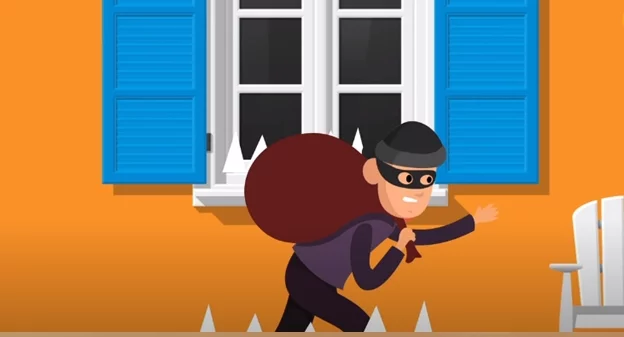
- If you have an automated garage door opener, turn it off. This prevents anybody with a remote controller from unlocking the door while you are gone.
Conclusion for How to Protect Your Home When You're On Vacation
Following these tips will help ensure that your home is safe and secure while you're away on vacation this summer. Remember to enjoy yourself and relax; knowing that your home is taken care
More from my site
 |
 |
 |
 |

About Robert Fox
Rob Fox is a former hydro worker who used to teach self defence in Miami for 10 years. He's currently enjoying his retirement, playing cribbage and golf with his buddies, locksmithing and home security in his spare time. Rob is an avid reader, and has even written a few books on the subject of self defence.
Thoughts on "Best Ways To Protect Your Home When You're On Vacation"
 |
 |
 |
 |
Check These Out
You can Get FREE Gifts. Furthermore, Free Items here. Disable Ad Blocker to receive them all.
Once done, hit anything below
 |
 |
 |
 |